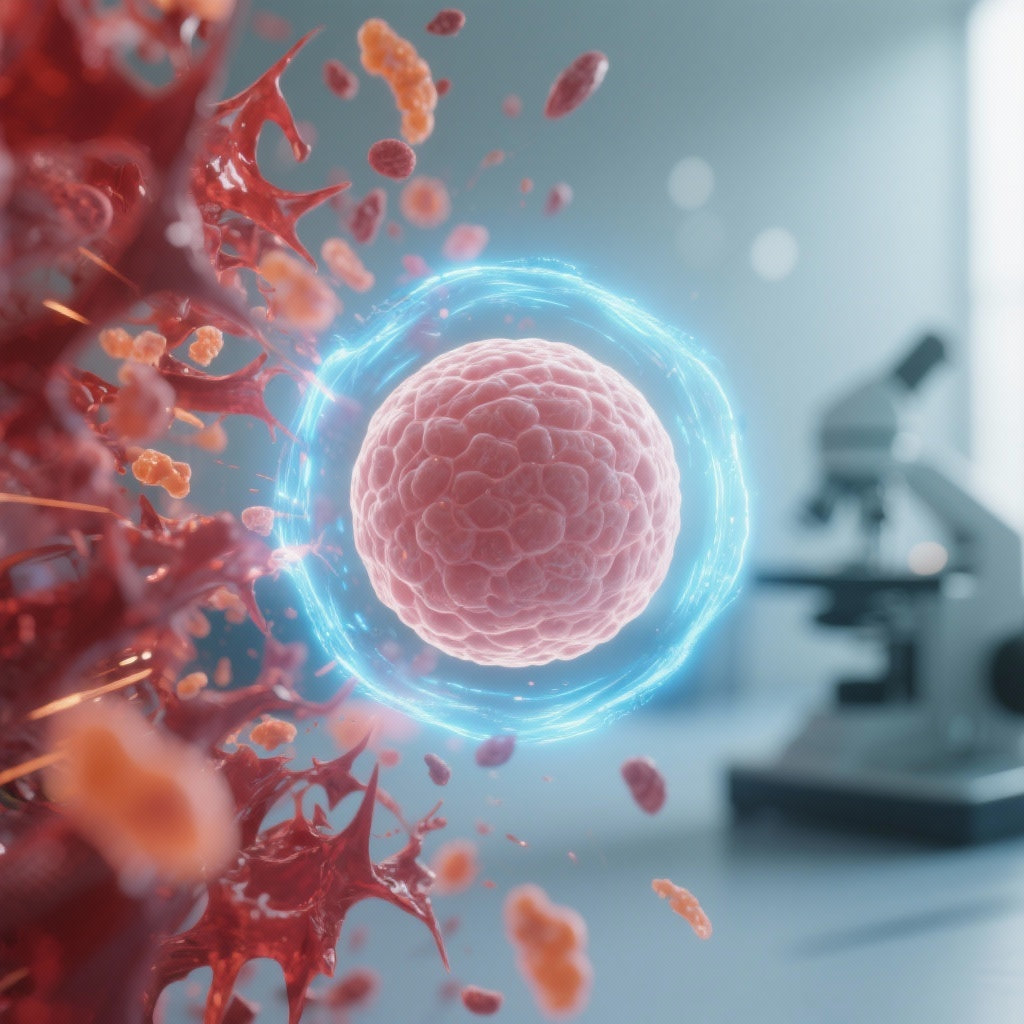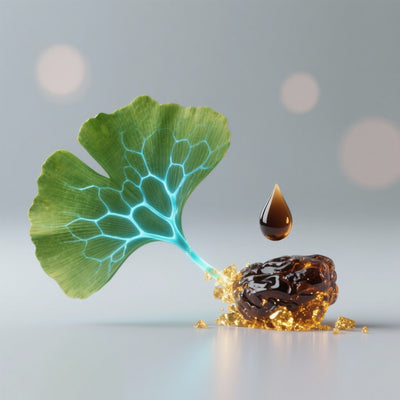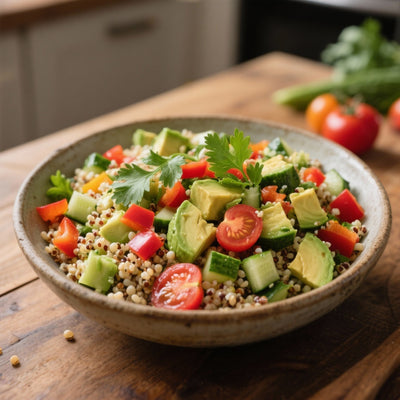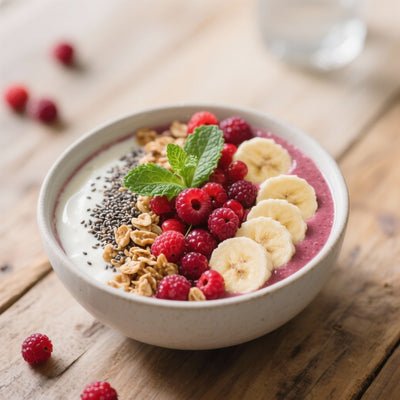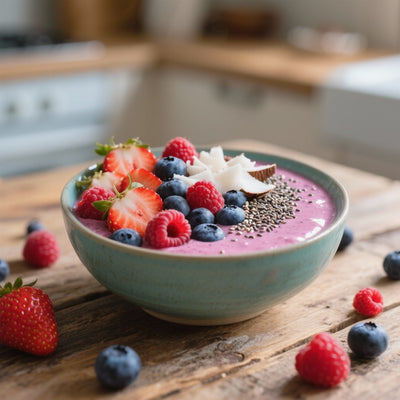What is oxidative stress and how does it accelerate skin aging?
Does your skin look duller and more tired than usual? Are you noticing the appearance of fine lines faster than expected, and a loss of firmness that worries you? While time is an inevitable factor, there is a more insidious and often overlooked enemy that works silently: oxidative stress .
This complex biochemical process is one of the main culprits behind premature skin aging. It's an invisible battle waged within your very cells. Understanding this phenomenon isn't just a matter of science; it's the first step to regaining control of your skin's health and youthfulness. In this article, we'll break down the mechanism of oxidative stress, identify its causes, and, most importantly, give you concrete and effective strategies to combat it on a daily basis.
Understanding Oxidative Stress: A Molecular Battle
To grasp the impact of oxidative stress, we need to delve into the molecular level. Imagine your body as a bustling metropolis where billions of chemical reactions occur every second. Most are beneficial, but some produce unstable waste products that can wreak havoc.
The Free Radicals: The Invisible Aggressors
At the heart of this phenomenon are free radicals . These are molecules or atoms that have lost an electron, making them electrically unstable and highly reactive. To regain their stability, they frantically seek to steal an electron from other healthy molecules around them. When they succeed, they damage the victim molecule, which in turn becomes a free radical, triggering a devastating chain reaction.
This cascade of damage can affect vital cellular components such as DNA, proteins (hello collagen!) and lipids that form the membrane of our cells.
The Essential Role of Antioxidants: The Guardians of Peace
Fortunately, our bodies have a sophisticated defense system: antioxidants . These molecules are the superheroes of our organism. They can donate one of their own electrons to free radicals without becoming unstable themselves. By doing so, they neutralize the threat and stop the chain reaction before it causes significant damage. Our bodies produce some antioxidants, but we must obtain the majority through our diet and skincare routine.
When Imbalance Sets In: The Birth of Oxidative Stress
Oxidative stress occurs when this delicate balance is disrupted. It's a state where the production of free radicals overwhelms the antioxidants' defenses. The aggressors become too numerous, and the body's protective mechanisms are overwhelmed. This prolonged imbalance is directly linked to many diseases and, of course, to accelerated skin aging.
The Causes of Oxidative Stress: Identifying Your Skin's Enemies
The imbalance leading to oxidative stress is caused by a multitude of factors, both internal and external. Understanding these factors is essential for implementing an effective protection strategy.
External (Exogenous) Factors
- Exposure to UV Rays: This is by far the number one culprit. The sun's UVA and UVB rays are powerful generators of free radicals in the skin.
- Air Pollution: Fine particles, ozone and other pollutants create significant oxidative stress, weakening the skin barrier.
- Smoking: Smoking exposes the skin to thousands of toxic chemicals, causing a massive production of free radicals and reducing blood circulation.
- An Unbalanced Diet: A diet rich in sugars, processed fats and poor in fruits and vegetables deprives the body of necessary antioxidants.
Internal (Endogenous) Factors
- Normal Metabolism: The simple act of breathing and producing energy creates free radicals as natural by-products.
- Inflammation: Inflammatory processes, whether acute or chronic, generate oxidative stress.
- Psychological Stress: Chronic stress increases cortisol levels, a hormone which, in excess, promotes the production of free radicals.
- Lack of Sleep: It is during sleep that the skin repairs itself. Insufficient sleep hinders these defense and regeneration mechanisms.
The Devastating Impact on Skin Aging
When oxidative stress becomes chronic, the consequences on the skin become visible. It doesn't attack just one thing, but weakens the entire skin ecosystem.
"Did you know that nearly 80% of the visible signs of facial aging, such as wrinkles and hyperpigmentation, are attributable to exposure to UV rays, a major trigger of oxidative stress?"
The Attack on Collagen and Elastin
Collagen and elastin are the proteins that form the supporting "mattress" of our skin, giving it its firmness and elasticity. Free radicals degrade these precious fibers. Collagen breaks down and elastin loses its suppleness. The result? Sagging skin, deeper wrinkles, and a general loss of tone.
Chronic Inflammation and "Inflammaging"
Oxidative stress maintains low-grade inflammation, a condition scientists call "inflammaging" (a contraction of inflammation and aging). This silent but persistent inflammation accelerates cellular degradation and contributes to all aspects of skin aging, from redness to loss of firmness.
Hyperpigmentation and Uneven Skin Tone
Free radicals can also disrupt melanocytes, the cells responsible for pigmentation. This disruption can lead to an uncontrolled production of melanin, resulting in the appearance of brown spots, an uneven complexion, and a lack of radiance.
Weakening of the Skin Barrier
Finally, oxidative stress damages the lipids that make up the hydrolipidic barrier. This barrier is essential for maintaining hydration and protecting the skin from external aggressors. When weakened, it allows water to evaporate more easily and becomes more permeable to irritants, leading to dry, sensitive, and reactive skin.
Defense Strategies: Protecting Your Skin Effectively
The good news is that oxidative stress is not inevitable. By adopting a holistic approach, you can strengthen your skin's defenses and significantly limit the damage.
1. The Power of Antioxidants on Your Plate
Your first line of defense is in your diet. Incorporate a wide variety of colorful fruits and vegetables to boost your antioxidant intake:
- Vitamin C: Citrus fruits, peppers, kiwis, broccoli.
- Vitamin E: Almonds, sunflower seeds, avocados, spinach.
- Beta-carotene (Vitamin A): Carrots, sweet potatoes, kale.
- Polyphenols: Berries, green tea, dark chocolate, grapes.
- Selenium: Brazil nuts, tuna, sardines.
2. Skin Care: Your Daily Shield
A targeted skincare routine is essential to deliver antioxidants directly where they are needed and to protect the skin from aggressions.
-
Morning: Prevention and Protection
Essential step: Apply a Vitamin C serum . It's one of the most powerful and well-researched antioxidants. It neutralizes free radicals generated by UV rays and pollution. Always finish with broad-spectrum sunscreen (SPF 30 minimum) . This is your most important anti-aging step. -
Evening: Repair and Regenerate
A key step: Incorporate active ingredients like retinoids (retinol), which not only stimulate collagen production but also possess antioxidant properties. Niacinamide is also an excellent ally for strengthening the skin barrier and soothing inflammation.
3. A Healthy Lifestyle: The Pillars of Prevention
Your lifestyle habits have a direct impact on the level of oxidative stress in your body. Don't underestimate them.
- Manage your stress: Practice meditation, yoga, deep breathing or any activity that helps you relax.
- Prioritize your sleep: Aim for 7 to 9 hours of restorative sleep per night to allow your skin to regenerate.
- Move regularly: Moderate physical activity stimulates the body's antioxidant defense systems.
Frequently Asked Questions about Oxidative Stress
Can oxidative stress be completely eliminated?
No, and it's not desirable. Free radicals, in small quantities, play useful roles in the body, particularly for the immune system. The goal is not eradication, but maintaining a healthy balance between free radicals and antioxidants.
Are antioxidant dietary supplements effective?
Their effectiveness is debated. Research shows that antioxidants are more effective when they come from whole foods, where they work synergistically with other nutrients. Before taking supplements, it is best to consult a healthcare professional and prioritize a rich and varied diet.
At what age should we start to worry about oxidative stress?
Prevention is key. It's never too early to adopt good habits. Daily sunscreen application and a healthy diet should begin at a young age. Incorporating specific antioxidant serums is generally recommended starting in your early twenties.
Take Back Control of Your Skin Aging
Oxidative stress is a powerful force that shapes how our skin ages. While it may seem complex, solutions to manage it are within our reach. It's not about finding a miracle cure, but about adopting a holistic and consistent approach.
By nourishing your body from within with an antioxidant-rich diet, protecting it from the outside with targeted skincare and rigorous sun protection, and supporting its natural repair mechanisms with a healthy lifestyle, you give your skin the best weapons to resist the effects of time. You can't stop the clock, but you can certainly slow down its visible effects.
What's your secret weapon or favorite tip for protecting your skin? Share it in the comments below!
